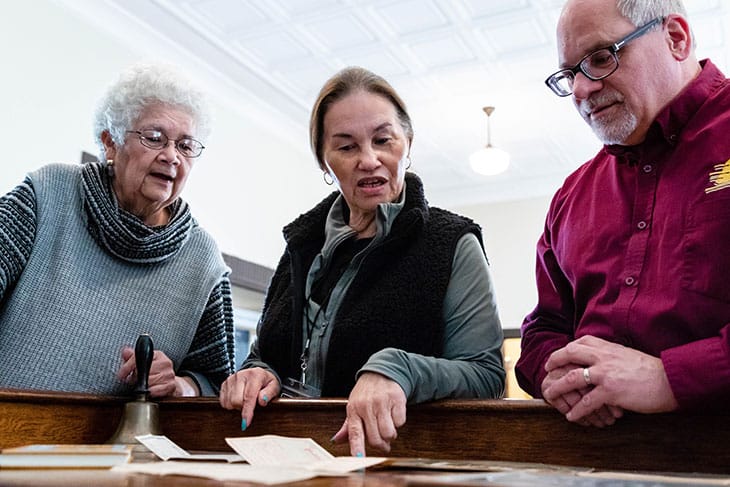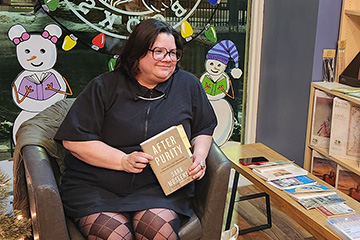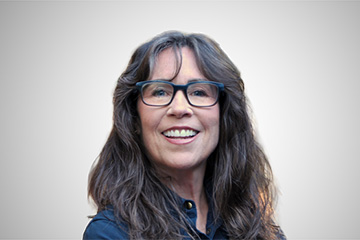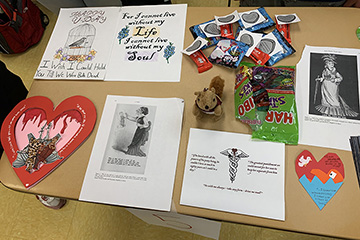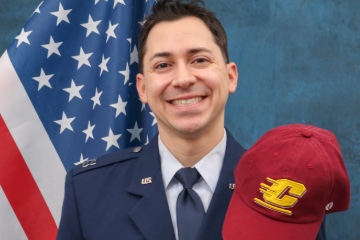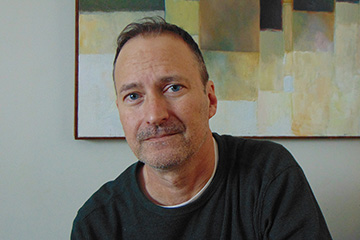Historian celebrates a legacy of diversity
CMU museum director connects with community whose African American ancestors were central Michigan pioneers
When central Michigan opened to non-Native American settlement around the time of the Civil War, some of the first Mount Pleasant-area pioneers were African Americans moving north from a Revolutionary War-era community in Marietta, Ohio.
They formed what Central Michigan University history faculty member Jay Martin calls the first fully integrated community in Michigan, joining a rural population of Native American families and a growing number of white settlers in Isabella, Mecosta and Montcalm counties.
"It was very different from the African American experience elsewhere," he said.
Martin sees the community's legacy aligning with CMU's culture of diversity, equity and inclusion.
"The members of this diverse community went to school together. They intermarried. Together, they developed a unique identity," he said of the early settlers. "They lived and worked together with a level of acceptance uncommon at the time. They understood theirs was a special community."
A community's story
CMU's Museum of Cultural and Natural History and its partner the Isabella County Historical Society will host a free presentation entitled "Journey to Michigan: The Old Settlers" about the Old Settlers community from 7-8:30 p.m. Tuesday, Nov. 12, in the museum lobby in Rowe Hall. Hear from Diana Green and other descendants as they describe the emergence of an African American identity in Isabella, Mecosta, and Montcalm counties. Free parking is available in Lot 14.
Collecting oral histories
As director and history curator of CMU's Museum of Cultural and Natural History, Martin works with descendants of the community to research and preserve a legacy that includes history-making members such as the late Vernie Merze Tate.
Born in Isabella County in 1905, Tate became the first African American to attend the University of Oxford, received a doctorate from Harvard University and became a history professor at Howard University.
Hundreds of Old Settler descendants from as far away as Chicago, Detroit and Atlanta, Georgia, gather every third Saturday of August in Mecosta County's School Section Lake Veteran's Park for the Old Settlers Reunion picnic, held annually since 1934. The event helps maintain their shared connection to mid-Michigan and to those who founded their community.
Martin attends, too, collecting oral histories with a team of CMU history and museum studies students preparing for careers safeguarding the past.
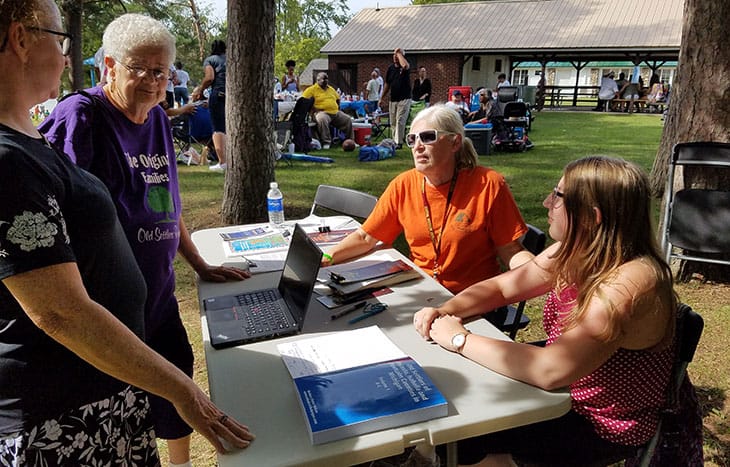
Honoring Civil War veterans
Martin also has taken students with him to research historic sites, including Morgan West Wheatland Cemetery near Remus, Michigan, where some of the original settlers are buried, including 14 African American veterans of the Civil War.
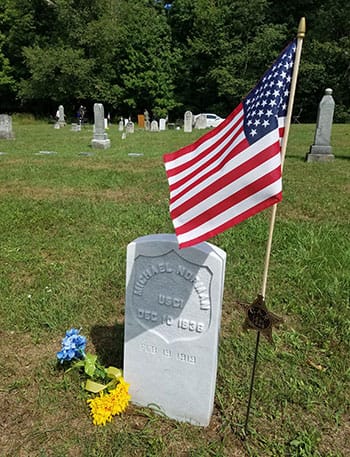 The Old Settlers worked with members of the Kaleva, Michigan, post of the Veterans of Foreign Wars to secure headstones from the U.S. Veterans
Administration for the previously unmarked graves of six of the African American Civil War veterans, including one who was previously unknown. Martin and his students worked with the CMU museum to obtain an anonymous donation to pay for the cost of
installation.
The Old Settlers worked with members of the Kaleva, Michigan, post of the Veterans of Foreign Wars to secure headstones from the U.S. Veterans
Administration for the previously unmarked graves of six of the African American Civil War veterans, including one who was previously unknown. Martin and his students worked with the CMU museum to obtain an anonymous donation to pay for the cost of
installation.
The Old Settlers also have chosen the CMU museum as the repository for their historical artifacts, and Martin is building collaborative research with family members and hopes to have centers at CMU and in Marietta.
As a historian, Martin values the Old Settlers' legacy for its own sake, but he also hopes closer ties with this community-minded population will benefit CMU and deepen its diverse student body.
The organization Old Settlers Reunion Website awards computers to college-bound high school graduates each year, while the Old Settlers Reunion Association, a similar group, presents an annual scholarship that has helped recipients attend CMU and other colleges and universities.
"We can help this community tell its unique story," Martin said.
Starting to listen
Diana Green, 71, a lifelong resident of the Remus area, traces her lineage to the original 1860s settlers, six or seven generations back. She attends the picnic every year, as did her parents and grandparents, and she volunteers as secretary of the Old Settlers Reunion Website.
She said the Old Settlers descendants have struggled to be heard and acknowledged as part of mid-Michigan history, and Martin has made a difference.
"No one's really paid attention until Dr. Jay," Green said. "Finally, people are starting to listen.
"We've made a mark in the community, and we want people to realize that."
